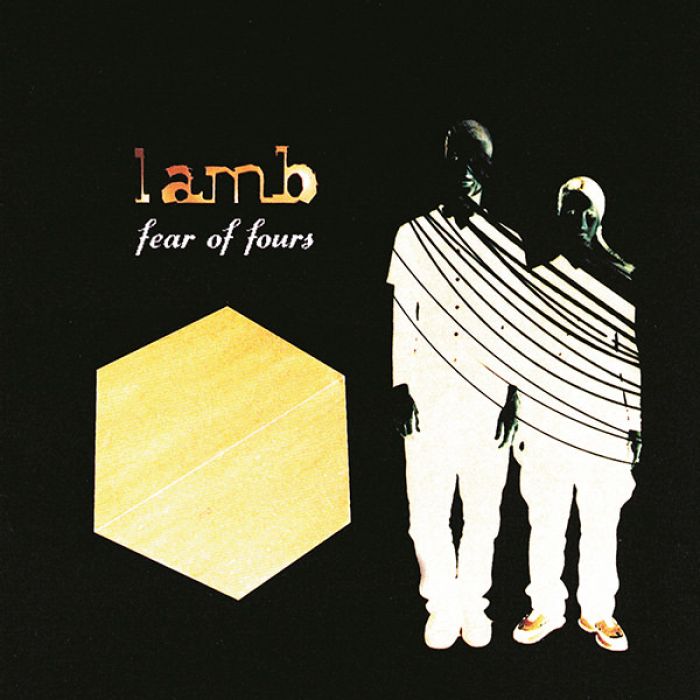Fear of Fours by Lamb (Review)

Like it or not, most bands fit into a formula. Don’t give me that crap about trying to break out from the formula, to do something new, ’cause it just ain’t gonna happen. Most bands just don’t have the skills to actually live up to that claim, and the mediocre junk they release just seems to mock their so-called efforts to be “groundbreaking” and whatnot.
Looking at Lamb, it seems pretty obvious that they’re working with a tried and true formula. Take one sultry female vixen with a voice out of a noir film, pair her up with a studio whizkid, throw the two in the studio, and the result is always pure magic. Portishead did it and, according to MTV and Rolling Stone, started that whole “trip-hop” craze, right? Remember when the kids were down with that?
So, Lamb releases their first album and immediately gets matched up against the big P. And I’m sure that people will compare this album with Portishead’s last offering. But, again, we’re just playing to the formula. I mean, aren’t all “trip-hop” bands supposed to be compared to Portishead?
So let me start off this review by saying that Lamb does NOT sound like Portishead, or any of the other trip-hop groups. Other trip-hop groups serve as pointers to the sound Lamb achieves here, but Lamb’s music is something altogether different. The main difference? Lamb’s music, despite all of the seriousness and talent exhibited by the two members, exudes a sense of playfulness and lustiness no other trip-hop group has.
Listen to Portishead or Massive Attack. Their music suggests dark rainy streets, smoky nightclubs, and backalley stabbings. They’re dark and serious, forboding and mysterious. But the along comes Lamb, running underfoot and giggling with youthful charm and ruddy cheeks.
Maybe it’s Lou Rhode’s voice. It doesn’t have the smoky polish of Beth Gibbons. There’s an edge to her voice to be sure. But her often-pinched voice teases you, toys with you (“All In Your Hands”). She’s probably singing with a smirk on her face, a little gleam in her eye. And she isn’t singing about rainy days or existential nonsense. She’s singing about desire and passion. Sometimes, it even seems spiritual and exultant (“Fly”). And when she sings “I hope it’s cozy in there” (“Alien”) to her unborn child, it’s just downright spooky.
Maybe it’s the music. Andy Barlow could be accused of taking a backseat to Rhodes, but his work as producer and songwriter shouldn’t be overlooked. He’s as adept at throwing out pumping jazz-inflected rhythms and frantic beats (see “B Line” or “Ear Parcel”) as he is with creating carefully-orchestrated loops that can be dramatic (“Bonfire”) or exultant (“Fly”). Some might fault him for sounding too gimmicky — “Ear Parcel” gets a little disjointed at times — but it works 99% of the time. And you’ve got to admire a guy who’ll sample Bach and Charlie Parker with equal license.
But I think it’s energy that flows between the two. It seems like an odd pairing. His music is the calm and polish swirling around the teasing and tempting of her voice. There’s an energy in this music, a playfulness in it, but a seriousness and gravity as well. Rhodes teases you and pulls you in with her voice, and Barlow brings it home with his insane sampling and arranging skills. And somewhere between those two opposites is where Lamb’s music derives its strength.